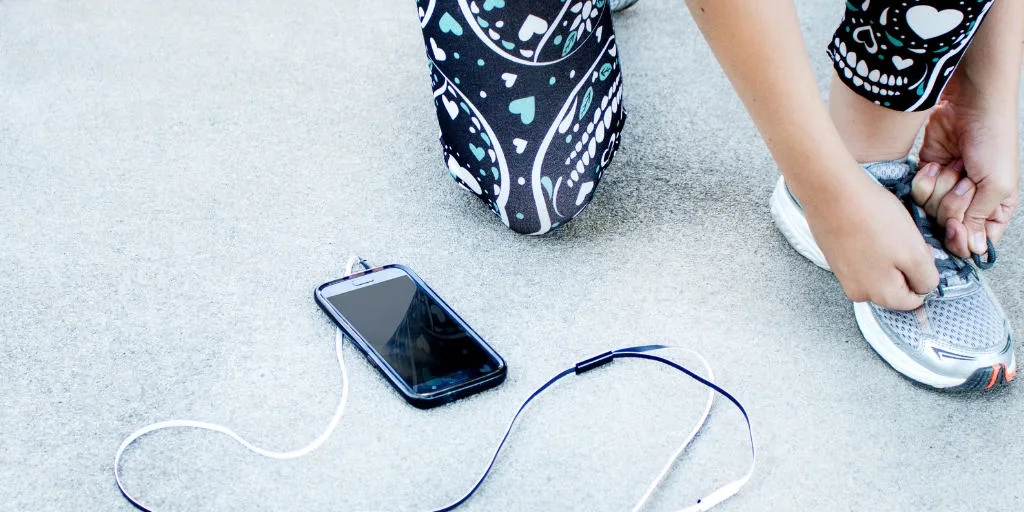The steps you take now ultimately impact the quality of life you’ll experience as you age. Fortunately, being proactive and health-oriented is a combination of many small steps. Rather than pushing for perfection, focusing on doing as many of these small activities as possible can yield significant results.
Holistic health and wellness tips for healthy aging
Identify Your Risks
Everyone experiences age-associated risks. For some, however, the habits and actions that have a minimal impact during one’s youth become more problematic with age. Smoking, for example, is a significant risk factor that becomes more worrisome every year. Inactivity is another issue that becomes more serious with age.
Make a list of your overarching risk factors, from genetic predispositions to concerns your physician has shared at recent check-ups. This exercise will help you drill down and focus on actionable tasks to improve your health and longevity.
Focus on Creating Sustainable Routines
One of the struggles people of all ages face when trying to make a change is focusing on the end result. Consider weight loss, for example. If the goal is to lose 25 lbs, that is a huge, arduous task with no real deadline or action plan. Instead of focusing on the destination, focus on the journey instead, and what steps will you take today to make a change.
Create sustainable routines, starting with a single, simple daily task. Continuing the weight loss example, that task could be adding a serving of vegetables to each meal. After making that task a habit for a week, you can scale up and replace your soda with water at dinner. Then, continue adding healthy habits until it becomes a routine.
Focusing on small, action-based tasks and scaling up over time creates sustainable change. Whether it’s planning to exercise more, incorporating a mindfulness routine into your day, or making time to read, the key is taking small steps forward. Reverse engineer your goals into daily, weekly, and monthly habits.
Prioritize Healthy Movement
It’s never too late to start an exercise routine. Active aging is a subset of healthy aging and focuses on introducing fitness at any age. Many aging adults benefit from activities such as weight lifting and resistance training— it just takes some guidance and body-friendly modifications to get started.

However, an exercise routine doesn’t have to be intense or structured. Work to prioritize healthy movement every day by choosing something you love. Your exercise could be a daily walk, weekly dance lessons, and yoga before bed — whatever appeals to you.
Movement and exercise have a dose effect, meaning that your body responds every time you move more than usual. If you’re starting from nothing, the act of getting up and vacuuming for 10 minutes will have an impact on your metabolism.
As with other habits and goals, start small and scale up as they become routine. This week you might only walk for 10 minutes a day. Next week, you might decide to add 10 more minutes. Remember that even the Olympians started small. Focus on progress over perfection.
Attend Annual Wellness Check-Ups
Preventative health and pre-screening are paramount as you age. Make time for your annual wellness check-ups and age-related screening tests. Early detection is the key to health and longevity. In the scary event that something arises on one of your tests, know that it’s an annual check-up that could ultimately save your life.
Preventative health screening check-ups could include:
- Blood tests
- Testing blood pressure
- Well-Woman check-ups
- Osteoporosis screening
- Cancer screening
- Diabetes screening
No one likes a trip to the doctor’s office. However, the inconvenience of a check-up is well worth the return on investment when your health hangs in the balance.
Don’t Neglect Secondary Health Tests
In addition to the primary health screening protocols, it’s also important to keep up on your secondary health tests and visits as you age — dental and eye exams, for example.
Hearing loss screening is another secondary health service worth investing in as you age. Additional screening and hearing aids cost a significant amount of money. As you reach this stage in your life, consider investing in supplementary or gap insurance to ease the financial burden.
Manage Your Conditions
In addition to being proactive in your health screenings and preventive treatment strategy, it’s also important to manage the conditions you’re currently facing. If you have an existing condition such as high blood pressure or diabetes, focus on managing those issues before taking on new tasks.
Fortunately, many conditions benefit from holistic health habits, such as healthy eating and movement. However, these current issues should always be the top priority.
Develop Good Sleep Habits
The importance of high-quality sleep cannot be understated, especially as we age. Sleep plays an important role in essential body processes, such as:
- Tissue repair
- Mental cognition
- Hormonal regulation
- Circulation
- Metabolism and digestion
- Increasing immunity and disease prevention
Getting enough sleep often comes down to healthy sleep hygiene habits. Invest in a bed that provides adequate joint support and comfort to get a good night’s rest. Turn your room into the ideal sleep environment with a cool temperature, white noise, and darkness.
Practice sleep-friendly habits before bed, avoiding caffeine after lunchtime, and eating food two hours before sleeping. While it’s a myth that eating before bed causes weight gain, it does activate your digestive system and can cause restlessness.
Create a soothing sleep routine that helps you wind down and relax, triggering a natural response in your body that it’s time for bed. This routine could include anything from having a calming cup of tea to reading a book and taking a bath. Try to maintain a consistent sleep schedule to get the best rest possible.

Prioritize Nutrition and Hydration
One of the saddest parts of aging is saying goodbye to the late-night pizza and fully loaded nachos that were once impervious to our young dispositions. While it’s ok to indulge every now and then, prioritizing nutrition and hydration becomes more important with age.
Focus on getting a well-rounded diet with natural sources of lean protein, fruit, and vegetables. Learn portion control practices that suit your individual needs, not an out-of-the-box recommendation from a magazine trying to sell you a diet.

Photo by Dan Gold on Unsplash
Cultivate Nourishing Relationships
Health isn’t just about how much we move or what we eat. The people we surround ourselves with have a direct impact on our overall health and wellness. As you age, let go of the relationships that no longer serve you well and set boundaries with those who have a negative impact on your life.
Use your time to cultivate nourishing relationships with people you care about and enjoy. Consider broadening your social circle to find new friends with similar interests as you age. Maintaining connections and social engagement plays a subtle, yet integral role in healthy aging.
Exercise Your Mind

Photo by Lê Tân on Unsplash
Your mind, like your body, needs to exercise to stay healthy. Engage in activities that improve your cognition, such as reading, puzzles, and lifelong learning. Consider taking supplements like Omega-3 fatty acids to help protect your brain health as you age.
All of the things on this list— healthy eating, exercise, and sleep, to name a few— also contribute to improved cognition and brain health.
Learn Stress Management and Coping Strategies
Stress is a silent killer that exacerbates a number of physical health issues. To protect your physical and mental health, learn stress management and coping strategies.
The first lesson in stress management is knowing what you can and cannot control. You can control unhealthy relationships that cause you strife. You cannot control a burst pipe that causes damage to your basement and costs money to fix. When you can accept that something is out of your control, you can work to let it go.
Activities such as meditation and journaling can help process stress in a meaningful way. Additionally, exercising and social interactions can help burn off stress. If you continue to struggle with coping skills and stress management, reach out to a professional to help you develop strategies to protect your mental health and well-being.
Improve Your Financial Literacy
Not having enough money to pay for the basic needs of life is a problem that plagues many people as they age. Financial health and wellness is a part of your overall health and wellness.

Consider working with a financial advisor to ensure you have the funds you need to live well as you age. Calculate how much money you currently spend and how much you’ll need to save to get you through retirement. If you struggle with financial management, put practices in place using free resources available online.
When improving financial literacy, some key areas of focus should be your credit report, current debt load, savings, where your money goes each month, and investments.
The best time to develop financial literacy is in your youth. The second best time is right now. Fortunately, many people in the “baby boomer” generation were raised by parents who experienced the Great Depression, instilling the importance of saving for an uncertain tomorrow. Conversely, they were also raised in a time where talking about money was considered taboo.
Furthermore, growing up with a restrictive money mindset encouraged many baby boomer parents to give their children a different experience, in which they would never go without. This upbringing has left many Gen X and Gen Y individuals without healthy money management skills. Throw in the introduction of credit cards, and you have a recipe for financial disaster.
Whether the golden years are two years away or 10 years away, it’s time to get your finances and money mindset in order for healthy aging.
Set and Achieve Goals
One of the common struggles that retired individuals face is the lack of structure or direction. While having downtime and celebrating years of hard work is well-earned, humans need a purpose to thrive.
Now is the time to set new goals and try new things that you previously lacked time to try. Alternatively, if there are things you will be unable to do after retirement, make a plan to do them now.
Consider the big bucket list items of your life, such as taking an African safari or living abroad. Start planning for these things and put the resources together over time to achieve your dreams as you age. Make your goals meaningful and timely, reverse engineering them into daily, weekly, and monthly tasks. Shift your mindset into one of planning, rather than one of wishing.
Age is More than a Number
The saying, “age is just a number,” while well-meaning, is a reductive statement. Your age is an accumulation of years of experience, knowledge, and value. It’s a number worth celebrating with each passing year.
You’ll find that many of the tips for healthy aging on this list overlap and interact. Take a holistic approach to healthy aging, focusing on happiness, joyful experiences, and self-care.





![women [longevity live]](https://longevitylive.com/wp-content/uploads/2020/01/photo-of-women-walking-down-the-street-1116984-100x100.jpg)










